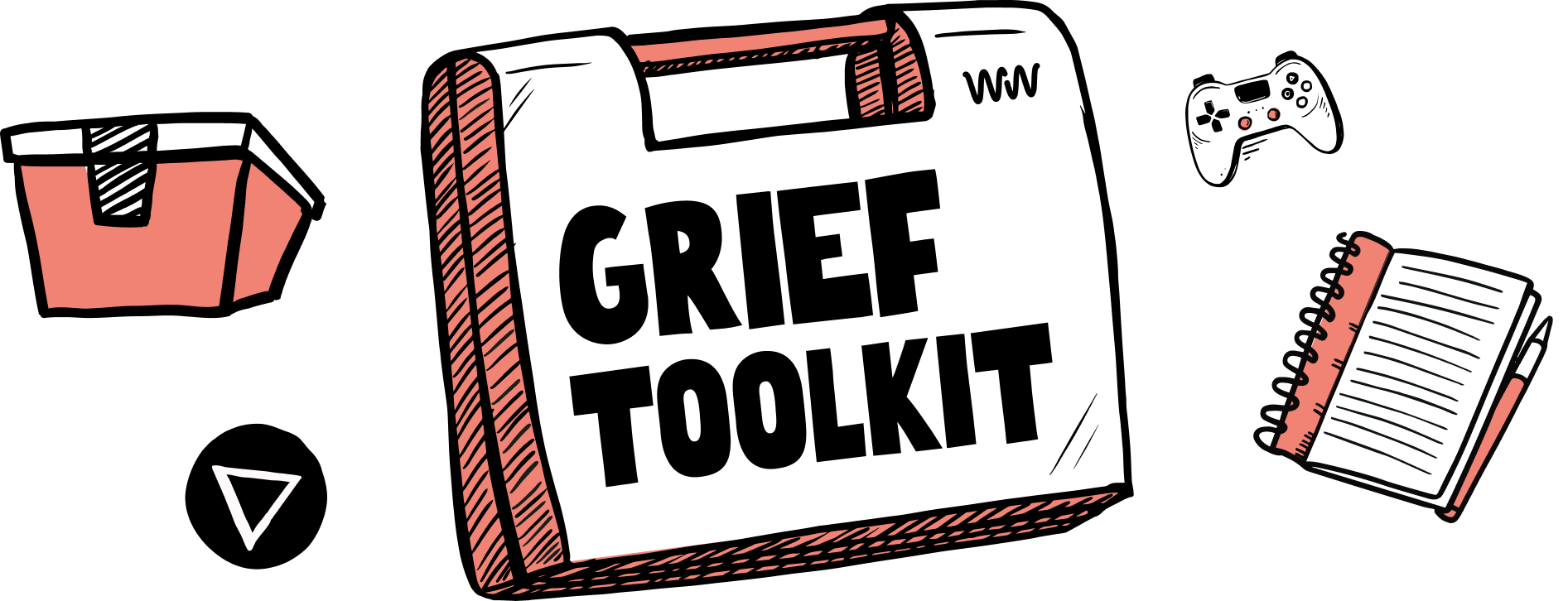How do people celebrate death around the world?
One thing we all have in common is life and death. There are lots of different traditions to mark the occasion of a person dying.
It’s weird isn’t it? Dreading Mother’s Day at the age of 21.
It almost feels as if you’re the only one in the world being swallowed up by anger and resentment towards those who are lucky enough to wake up on Mothering Sunday with their lovely mummies in their lives.
But for myself and other ‘demi-orphans’ (as we say in my family), it’s a time where shop windows seem to be shoving our pain in our faces at every turn, a time where you know you’ll probably be the only one in your friendship group without plans on Mother’s Day, a time when our ongoing feelings of loss and loneliness are made all the worse.
In fact, when you’re a grieving young adult, loneliness is a big part of it all. But there’s a difference between ‘alone’ and ‘lonely’, a difference that people like us understand. You see, I’m not alone during this time at all. I have beautiful friends who know about my loss and support me, therefore I know I am not alone. But feeling lonely is a very different thing and it’s more apparent than ever when you’ve lost someone close on a day that aims to celebrate that very individual – because whilst the world celebrates the one person you do not have any more, you have to watch it all happen, and that is truly lonely.
However, after 12 years of grieving, you come to learn therapeutic ways that ease the pain brought to the surface by Mother’s Day and, indeed, all the other anniversaries. I’ve learned to laugh at the shop windows, because as my lovely dad once said ‘Laughter is the glove that allows us to touch anything too painful to handle’ and that is so true. Talking is something else that has helped me. I’ll talk when I’m sad, when I’m angry, happy or simply hurting… talking helps me keep her alive, it helps me feel like she was once real and it makes me feel like I’m human and I am just grieving and that’s ok. Another way we coped in the earlier days was by having a special vase with her favourite flowers out on the day. This made her feel closer and most importantly, it made me feel like I still had a mummy because some days feeling motherless is unbearable.
You also come to learn that each year is completely different. As each year goes by, my grief has changed and grown just like I have, so some years it hurts more than others. And that too, is okay. Grieving isn’t linear and it never will be. It’s a rollercoaster of ups and downs. The ‘ups’ being those days where things seem easier to handle and more peaceful than the ‘downs’, where the pain is so heavy and the bitterness is there unavoidably on the surface. Such ‘downs’ I call ‘puddly days’ – it’s a term that helps me understand that this is just a sad day. I’m not going to drown in a river of sadness but I will be in a puddle for a while which I’ll soon be out of. It also helps people close to me know when I’m hurting more and, after all, some recognition of my pain by others is one of the most helpful things to me.
However, I want to end this blog on a happier note because despite my loss, I know I’m one of the lucky ones with a beautiful dad – he is my best friend, my father and, in so many ways, he has been my mother too. He’s done everything he can to help keep her alive within me and for that I am so grateful – so for me, I celebrate him on Mother’s Day.
When I experienced loss, nothing felt better than being cuddled and held by those I loved most. As I grew older, I understood that I needed to learn to hold the grief myself, but allow myself space to still feel the pain I felt after losing my mum. Most importantly, I needed to continue with my life – a fulfilled life that I deserve. At my lowest points or on my ‘puddly’ days as we called it in my family, I focused on specific items that made me feel less lonely, sad and anxious.
I soon realised that many of my friends often enjoyed indulging in my cwtchy things when they were going through rough times too, which is exactly what inspired me to start up Cwtchy Care. I wanted to create a box that would help bereaved children and adults, and others struggling with their mental health. A box full of specially chosen, comforting gifts which not only are items that I use and love, but each gift also draws on the neuroscience about the positive impact such things have on mental health.

Whether you’re struggling with your feelings, not sure how to express your thoughts or trying to find ways to remember your person who has died, we have lots of ideas to help.
View grief toolkitTalk Grief is powered by Winston’s Wish, a childhood bereavement charity that supports grieving children and young people up to 25. If you want to talk to someone about your grief, call us on 08088 020 021 (open 8am-8pm, weekdays), email ask@winstonswish.org or use our online chat (open 8am-8pm, weekdays). For out of hours mental health support, you can use Shout's 24/7 messenger service by texting WW to 85258. For urgent support, please call 999.


One thing we all have in common is life and death. There are lots of different traditions to mark the occasion of a person dying.

Hear from Natasha, Youth Ambassador, about how reading helps her process her bereavement.

Bereavement support tips for those who identify as part of the LGBTQ+ community. Tap the live chat button or scroll down to find ways to contact Winston's Wish for further support.

Discover ways to store memories of your parents and express how you're feeling in your grief.

Find ways to cope with grief and its emotions as a teen or young adult without their parents.

Winston's Wish Bereavement Support Workers share top tips for looking after your mental health when you're grieving.

Feeling confused by your grief? You're not alone. Our Bereavement Support Team share some reasons why it can be confusing.

Over winter, with the darker evenings, feelings of loneliness can seem more overwhelming than ever.

Iman, Youth Ambassador, shares how she grieves at Christmas even though she doesn't celebrate the occasion.

Crying is a normal response when your person has died, no matter how long ago. There's no right or wrong way to grieve, and it's okay to let it out.

A guide for grieving young people from the Winston's Wish Bereavement Support Team.

Three of our Youth Ambassadors, Anna, Libby and Angharad, reflect on their first Christmas without their person.

Winter and the Christmas holidays can be a difficult time of year. Here are five ways to remember your person this season.

Winston's Wish Bereavement Support Workers share their 8 top tips for bereaved teens and young adults through the colder months.

Youth Ambassadors share the ways they remember their person digitally, through photo albums, playlists, and more.

Youth Ambassadors, Daisy, Freya, and Katie, share their personal views of their own secondary losses as a result of their bereavement.

Hear from some of the Youth Team about times when their teachers have helped them with their grief.

Some tips for taking care of yourself when you're grieving for a celebrity or public figure.

Our Bereavement Support Team have written some guidance on how to manage grief when you feel like you aren't able to be open.

Lilly shares an introduction to her grief experience and why it's so important to her to be a Winston's Wish Youth Ambassador.

Hear from some of their Youth Team about how they found support at uni.

Angus, Content Creator, says, "This message is about embracing change and not letting current moments pass you by."

Coping strategies to support you after a teacher has died

Tips from our bereavement support team to help you with big life changes like moving out as a young adult.

Useful tips to help you understand and cope with your grief.

Feeling sad that your person isn't there, guilty that you're celebrating your results, or proud of yourself for your results. There's no right or wrong way to grieve.

It can be very difficult knowing what to say and to be around someone who has experienced the death of someone close. Adults find it difficult too, so try not to feel bad about this.

The death of a friend may feel extremely difficult and can feel as significant as that of a family member. Whatever you're feeling is valid, and there is no right or wrong way to grieve.


Jack, Content Creator, writes about how managing his grief through running has led to him winning the Leeds Half Marathon 2024!

Iman, Youth Ambassador, explains about Eid and shares what it's like for her and her family to grieve during Eid.

Miranda shares about how she uses music in different ways to help express her grief and emotions.

Ashleigh writes about how both writing and music have helped her in her grief.

The Winston's Wish bereavement support team share top tips for managing grief this Father's Day.

Grace's dad died from cancer when she was eight years old, she shares how she remembers her dad on Father’s Day.


Feelings of worry are very normal when you're grieving. Read on to discover some ways to manage these feelings.

Useful tips for exam season if you're grieving

Youth Ambassador, Iman, shares about her Eid celebrations as a grieving young person

Content Creator, Angus shares his thoughts

Useful tips for exam season

Interview with Mark O’Sullivan, writer of Tell Me Everything

Tips to help improve your sleep when you're grieving

How poetry can be a useful way to express your feelings

Young people share what it's like to grieve while studying at uni.

Our bereavement experts are available to speak to for immediate support on weekdays from 8am to 8pm.

Get top tips from bereavement experts, and hear from Youth Ambassadors, Henri and Teigan, about their experiences of Mother's Day.

Phoebe's mum died when she was nine. She shares how she feels on Mother’s Day and how she remembers her mum.


































